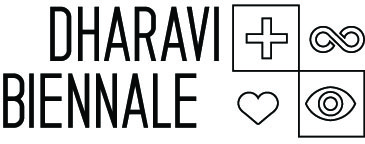Using scrap denim pieces and found objects, Mapping the Hurt is an innovative visualisation of gender-based violence in Dharavi. As appealing as it looks, with its blue patches and green appliqué work, the map is a visual record of the experiences of Dharavi residents, who marked the localities where they or their friends have experienced gender-based violence. Consolidating these subjective data and transforming them into a tactile map occured in two stages through SNEHA’s Little Sister project and a participatory workshop.
The Little Sister (Choti Behen) project works with community activists called sanginis and provides them with mobile phones with a survey app and an alert app called Eyewatch. The apps help the sanginis to record details that are necessary to respond to and prevent violence against women and children. Koushiki Banerjee, project coordinator, says, "At the press of a button, they can raise an alert and register a case with complete details.”
As part of Little Sister’s inquiry into violence in Dharavi's communities, Mapping the Hurt invited 150 residents to discuss experiences of gender-based violence. These experiences were accompanied by reflective questions that helped understand the social and geographical factors that may lead to gender-based violence. Why do certain streets have more incidences of eve-teasing? What are the gendered spaces in Dharavi? How can sanginis prevent domestic violence in a particular chawl? After the initial rounds of discussion, the women participants spotted sensitive areas on a large-scale detailed map of Dharavi acquired from the local municipal body. The map, cut into five sections according to major localities, was marked with the signs of violence in the form of soda bottle caps.
From tech to textile, the data recorded on the flex map were replicated by Dharavi women using embroidery and appliqué, under the mentorship of Susie Vickery. They were assisted by Mehzabeen Shaikh, one of the participants in SNEHA’s previous art-for-health programme, Dekha Undekha. Mehzabeen was one of the most creative and diligent artists and has become an excellent facilitator. For this map, old jeans sourced from a family in Kunchi Kurve Nagar were cut into pieces that were patched together. On this denim base, zips became railway lines, jeans’ waistbands marked main roads, glossy buttons turned into temples, and informal settlements were identified by bright green cloth. Once the map was ready, the violence markings were transferred onto it by using bits of plastic bags. Some of the participants of the sewing group were survivors of domestic violence themselves.
MENTOR ARTISTS
Susie Vickery, Mehzabeen Shaikh
PARTICIPANT ARTISTS
Sunita Kharukule, Sushma Vishwakarma, Triveni Devaliya, Anjali Amma, Jayashree Sonawane, Indravati Vishwakarma, Shubhangi Gaikwad, Draupadi, Shobha Pawar, Soni Salim Khan, Savirti Jaiswar, Nirmala Jaiswar, Nirmala Punjabi, Urmila Kori, Sangeeta Jaiswal, Sunita De Souza, Lalitha, Nitya Iyer, Hansabehn Devaliya, Antima Verma, Kismeti Devi, Usha Kharatmal, Aasma Bee Qasim, Farahna Khan, Parvin Bano, Shakuntala Jaiswar, Subeida, Savitri Mane, Lakshman Mane, Salma Bano, Parmavati Sharma, Kavita Vishwakarma, Geeta Pawar, Nalini, Jyoti Pandey
HEALTH EXPERTS
Koushiki Banerjee and Praful Kamble (Little Sister project, SNEHA), Madhuri Mohinder (Breakthrough India)

